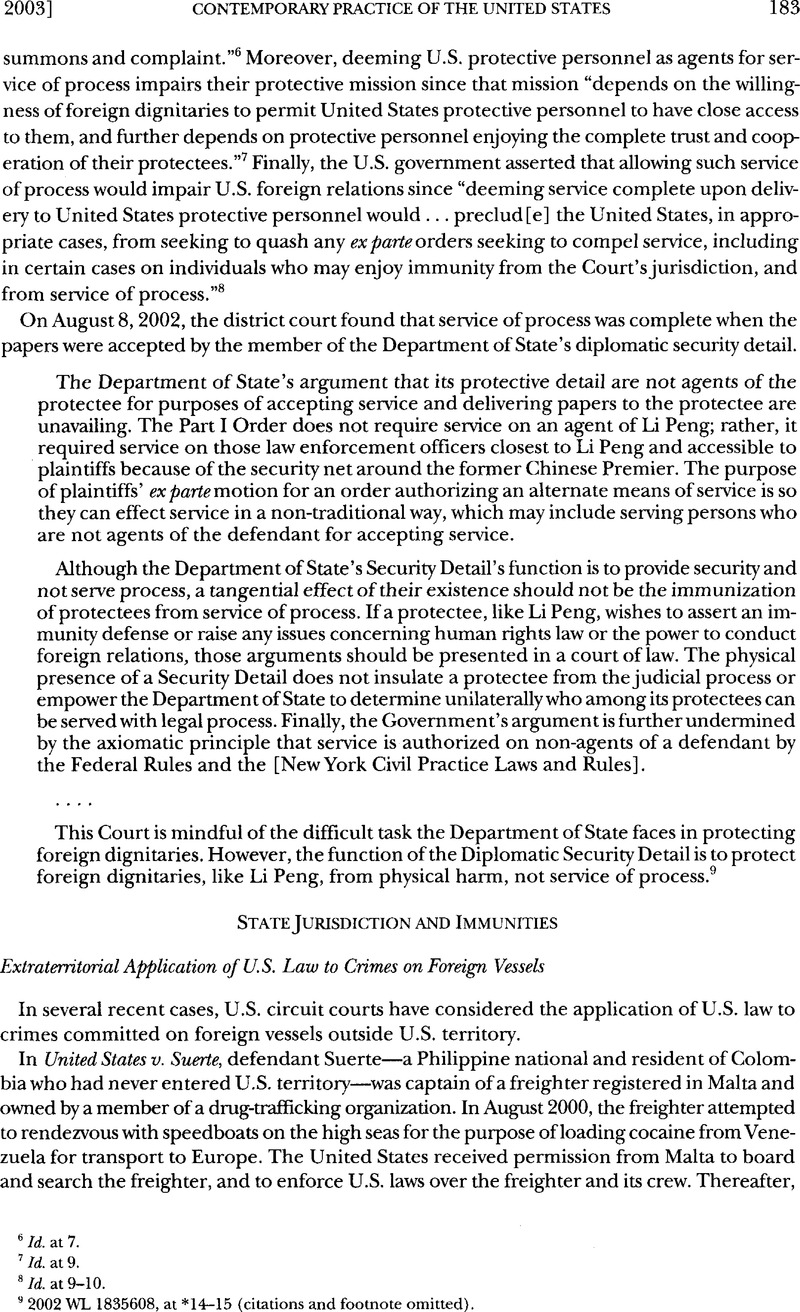Published online by Cambridge University Press: 10 March 2017

1 46 U.S.C. app. §1903 (2000).
2 United States v. Suerte, No. CRIM. 00-0659, 2001 WL 1877264 (S.D. Tex. June 6, 2001).
3 U.S. CONST. Art. I, §8, cl. 10 (“[t]he Congress shall have the power . . . [t]o define and punish Piracies and Felonies committed on the high Seas, and Offenses against the Law of Nations”).
4 United States v. Suerte, 291 F.3d 366 (5th Cir. 2002) (citing United States v. Palmer, 16 U.S. (3 Wheat.) 610,630 (1818) (“The constitution having conferred on congress the power of defining and punishing piracy, there can be no doubt of the right of the legislature to enact laws punishing pirates, although they may be foreigners, and may have committed no particular offence against the United States.”)).
3 Id. at 376-77.
6 See 8 U.S.C. §1324 (2000).
7 United States v. Best, 304 F.3d 308, 311 (3d Cir. (Virgin Islands) 2002) (citing Ker v. Illinois, 119 U.S. 436 (1886); Frisbie v. Collins, 342 U.S. 519 (1952)).
8 Id. at 314 (citing United States v. Alvarez-Machain, 504 U.S. 655, 662 (1992)).
9 Apr. 29, 1958, 15 UST 1606, 516 UNTS 205.
10 Apr. 29, 1958, 13 UST 2312, 450 UNTS 82.
11 Dec. 10, 1982, 1833 UNTS 397.
12 304 F.3d at 315.
13 18 U.S.C. §2244(a)(3) (2000).
14 18 U.S.C. §7(8) (2000).
15 United States v. Neil, 312 F.3d 419, 421-22 (9th Cir. 2002).
16 Id. at 422.
17 Id. at 422-23.